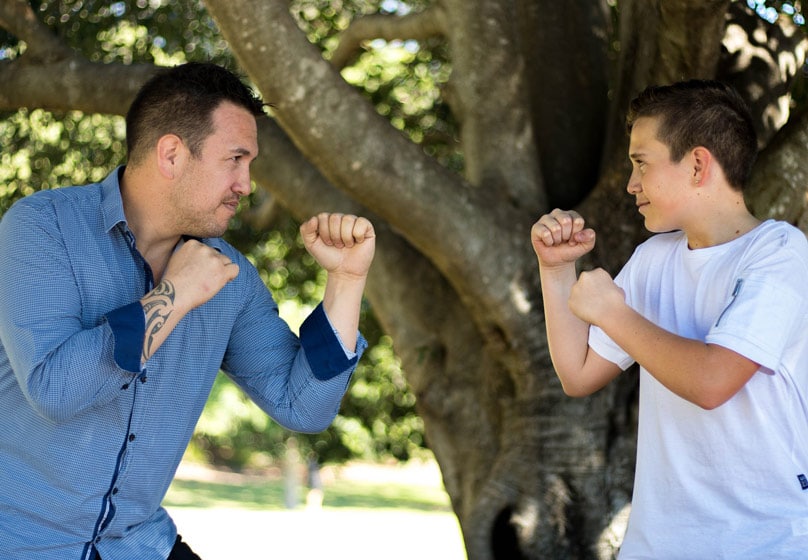
My parents raised their children in a difficult environment and economy. They were/are good people. They were well-intentioned and tried hard, but with five children to feed, clothe, school and care for, there was never much money.
There also never seemed to be much time for quality relationships. Like many other families of the time, Mum served in the home and carried out most of the child raising duties except the disciplining.
Dad was the boss, provided the discipline (sometimes harsh and physical), and worked two jobs in the early part of my life just to provide and put food on the table and pay the bills.
Sadly, in our family there always seemed to be too many bills and too little money.
My memory and experience of those times was that Dad was rarely home as a consequence of working two jobs and when he was at home he was exhausted and emotionally absent. We did not have a close relationship in those childhood years. I thought he loved me and I loved him, but we didn’t do many things together. We didn’t play much. He was not at the special events or present at my sporting activities and achievements.
The lack of a strong father-son relationship left me with many unanswered questions, confusion about who I was and what it was to be a man. My reflection is that I was searching and longing for affirmation, validation, modelling and instruction. It didn’t come and I was left incomplete and strangely ashamed.
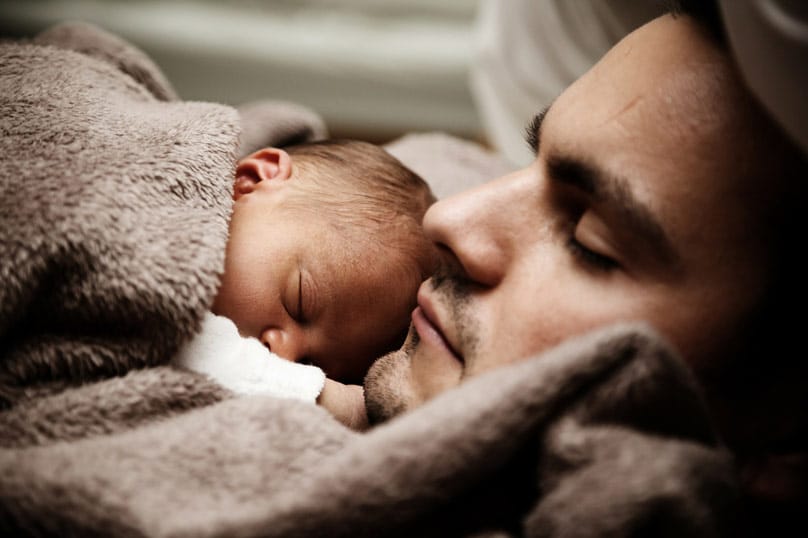
Now, I do not blame my father for any of this. It was not his fault. He did the best he could, given the times and the circumstances. His own upbringing left him significantly impaired and unfinished as a man. His father (my grandfather), Joseph, was a cook in the merchant navy. It was the era of steam driven vessels and long voyages across oceans and seas. Joseph was away most of Dad’s life, coming home only for a few weeks a year.
My recollection of my grandfather, Joseph, was a one off meeting. He was sitting at the laminex table in the small kitchen of his very part-time home, rolling his own cigarettes for that evening. I cannot remember what he said, if anything. I don’t recall my Dad saying anything either. The only thing communicated in the silence was distance.
I think of these times with sadness and lost opportunities. My Dad and I were strangers. I knew almost nothing about him, what he felt, how he thought, what made him happy or sad. Did he have dreams and hopes? I wanted and needed so much from him. He held and contained something for me (and I for him) that no one else had or probably could give.
Life, grace and circumstances provided new opportunities for a real relationship in Dad’s later years. I was in my late thirties when we both intentionally sought each other out, became reconciled and built a warm and meaningful relationship. He made efforts to reveal his heart and mind. I made efforts to listen, learn and love. Eventually, he said the words that I needed to hear — “I love you Robbie.” “I am so proud of you my son.” “You have what it takes to be a great man.” Necessary, irreplaceable, delicious words that became flesh, which became a man … me. We enjoyed each other, did things together, grew in relationship, laughed and cried, and as a consequence I grew as a man and he grew as a Dad. At this emotional banquet there was much healing, nurture, and nourishment.

In Dad’s last seven years his humanity, life and vitality drifted away. He was afflicted with the debilitating disease, dementia. It was an extremely sad situation. It was excruciating to watch someone I had come to know as a great man, my Dad, fade away. At the same time it was exquisite – having some of my warmest conversations with him.
John Falzon died in June, 2010.
I needed my Dad and he needed me. This father hunger, this father factor has been pivotal in my life.
It drove me to proactively seek a better relationship with my Dad. I am one of the fortunate ones to have been able to find resolution in my relationship with my Dad in my life time and subsequently be transformed in the process.
My relationship with My Dad has helped me understand how life defining is the relationship between a Father and his children. It is destiny defining.
Robert as Father
“My son, you’re a Dad”. “Congratulations Robert”.
My father, John, enthusiastically spoke these words like a blessing over me on April 17, 1987. It was on the morning of Good Friday that my first child was born. What a profound moment in my life, not just because it was a painfully traumatic experience, especially for my wife Alicia as the big baby was pulled into the world by high forceps delivery, but also at the same time it was triumphantly terrific. “It’s a boy!” A son was born. The whole experience was surprisingly exceptional, like this was the beginning of something momentous and hopefully magnificent. It was a significant and prominent transition in my journey as a man. In that instant I was changed. I became a father. I had arrived too!
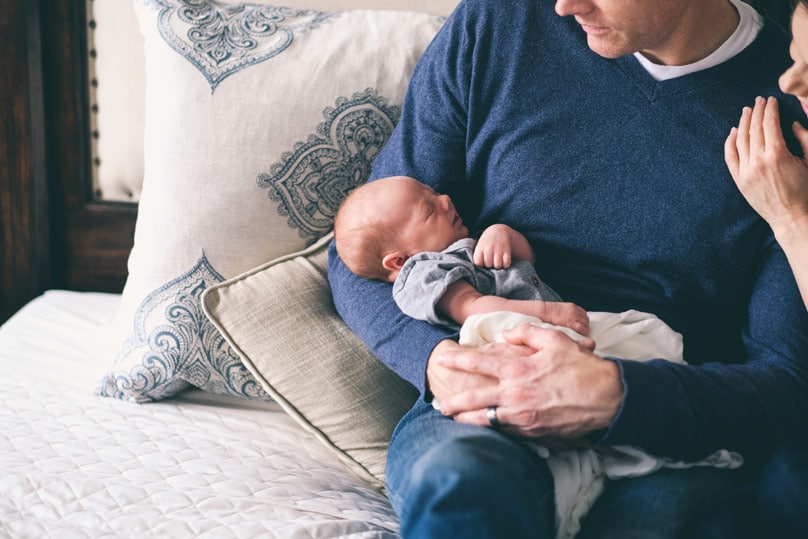
Incapable of containing the tears, joy and relief I looked at my son. I saw him, touched him, held him, smelled him and kissed him, marvelling at the miracle and revelling in the mystery of the moment. Look what I made! So many feelings and sensations were swirling in those minutes. From somewhere deep, a new place deep within me was revealed; a strange surge of tactile, tangible warmth, a form of love I had never experienced before.
In the 32 years that I have been married to my wife, Alicia, we have given birth to four children – Isaac, Matthias, Chiara and Shem. The joys of fatherhood have been many. When I set out on the great adventure of fathering, however, I had no comprehension of what it would take to be the father I desired and dreamed to be. Nor did I know how I would go about fulfilling the great responsibility of raising sons and daughters into men and women.
I was ill-equipped, idealistic and naïve – no training, no plan, no method, no instructions, no tools and no real sense of the staggering impact and generational imprint I would make in the most important task and vocation ever to be assigned to me. How would I do fathering? I received more instructions on how to set up our new blue ray DVD player with its two manuals (one written in five languages), warranties and a help-line, than anything that I had been given to be a father. This was like some high school science experiment where at any time something might just explode. Like it or not, my children were a great genealogical experiment.
I am not alone in my lack of training for effective fatherhood.
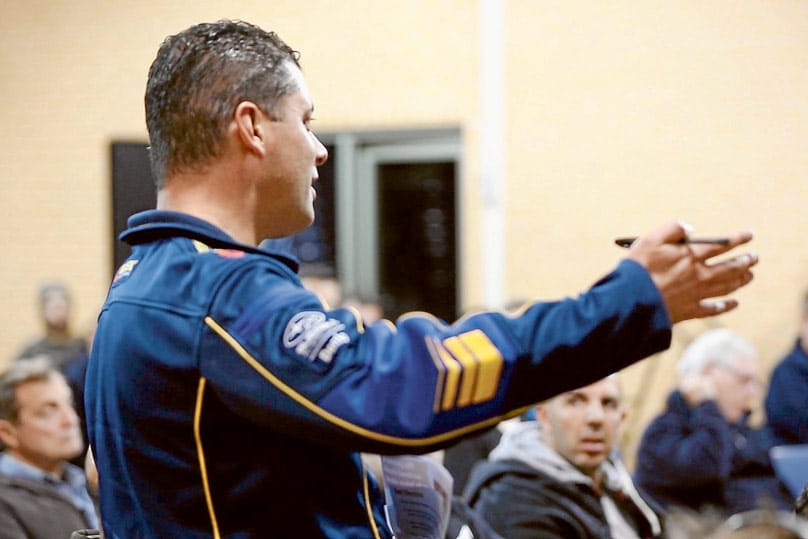
I had a father who was absent from the home much of the time. The experience of longing for my father, of needing a primary male figure in my life in my first 20 + years and the pain of not receiving it in my early years has been one of my greatest personal struggles. My desire and deep need for approval, validation, boundaries and initiation into manhood were not met. Some writers call this experience and journey the Father Hunger and Father Wound. There is an ancient saying, origins unknown, which suggests that -“What is not resolved is repeated”. Fr Richard Rohr has stated something very similar – “If the pain of your story is not transformed it will be transmitted”.
So what did I do when it came time to raise my own family? I repeated the historical patterns and pain of the past. I started a furniture manufacturing business in 1986 and over the years became extremely busy and stressed. The demands of a growing business and a growing family was more than I knew how to balance, so my family suffered. My fathering was accidental and dissipated. I was frequently physically absent from the home and when present, I was emotionally spent. In the late 1990s I had a wakeup call.
I noticed that my children were growing up without me and I was missing out on them. I wasn’t the father (or husband) I hoped to be.
It was time for change; I needed to modify my life direction, to grow up, to man up, to reject passivity, accept responsibility and live courageously – to become a better father, a better husband and a better man.
I began to read many books about parenting, manhood, fathering and all the associated material.
I realised I needed to repair the wrongs of the past and I sought forgiveness for my failings.
I also started to reflect and have a time of quiet and stillness every morning. A time to talk with God and a time for God to guide and instruct me. What began with 10 minutes is now today about 1 hour. This has helped me make the necessary change process a journey, rather than a one-shot event.
The Father Factor
As I have already stated. I struggled with my childhood relationship with my father and with the fathering of my own children. As I started to confront important issues, I began sharing my experiences with some trusted men. In the process I discovered that many of them struggled with the same issues. All of them were searching for integrity, intentionality and authenticity just as I was. I thought I was the only person in the world struggling with these issues and problems. I was wrong.
The Father Factor workshops
I found that most men who were prepared to be vulnerable expressed similar wounding and pain. So in 2003, along with a few brave men, I started a Catholic Lay Ministry for men called menALIVE. Since then we have worked with men in every state in Australia and in New Zealand.
During the past 12 years we have come to the realisation that the overwhelming majority of men have father wounds due mostly to absent fathering. Some men have been seriously damaged by not only absent fathers but by fathers that were present but angry, abusive and driven by addictions.
There have been men who never knew their biological fathers, either because their fathers passed away early in their life or because the fathers left the home and them and became anonymous Fathers.
The ministry of menALIVE has sought to be a fellowship and community of life and nurture for these men. It has also sought to encourage men to rise to their calling to be good fathers, husbands and leaders in their families and communities.
The incredible response to menALIVE in Australia and New Zealand is testimony to the significance of the father wounding problem and the need for the restoration of Fatherhood in our churches and society.
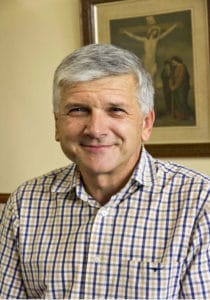
As of August 2017, about 20,000 men have participated in one or more menALIVE events. For more information on menALIVE go to www.menalive.org.au.
In my work/ministry with menALIVE over the past 13 years I have had the privilege of going to many places all over Australia and working with many men—20,000 in fact. What we have discovered is that many men struggle with Life—with happiness, success, health, relationships, marriage and raising children. None of this is new news. However, what we have encountered is that Fathers play a major role in influencing the outcomes of a person’s life.
Over the years I have come to understand through reflection of my own life and being given the privilege of access to many men’s lives that the role of the Father is one of the most important relationships one will ever have. So much so that I wanted to capture the truths and evidence from the social sciences that conclusively support this hypothesis.
This book began as an exposition of the problem of Fatherlessness which is a significant issue in the world: 1 million children go to bed each night in Australia without a Father, 30 percent of our teenage boys don’t have their biological father in the home and so on and on.
But when I ran into Peter O’Shea at a conference a few years back I invited him into collaboration to write this book. We changed the idea from an exposition of the problem of Fatherlessness, to an evidence based book on the impact of Fathers on children, marriage and society.
We had the idea that Fathers Mattered in the key drivers of success and happiness. In fact we discovered that there are 4 factors in determining success and happiness – The Father Factor, The Mother Factor, The Relationship/Love Factor and the Addiction Factor. We touch on all of these in this book but have focused on the Father Factor because it is in most need of social attention.
We claim – Those children perform better in every social indicator if they have an involved, nurturing and loving father. In fact these children will experience greater happiness, health and success.
We also show what happens when Fathers are; absent, angry abusive, addicted and anonymous.
Increased poverty/ lower educational performance/increased crime/ increased drug abuse/ increased mental health problems/ increased child abuse/Increase in physical health issues including obesity etc.
The material and findings in this book is supported by convincing, compelling and cogent evidence.
We have used and referred to over 170 peer evaluated research papers and books, we have included 50 case studies and stories and we have tried to be rigorously faithful to only communicating what can be supported by the evidence.
To quote page 7….. “This is The Father Factor. It is real, it is relevant and it is destiny shaping.”
This book has been written, in part, to help fathers to be better informed about their vitally important vocation. The book The Father Factor has also been written with a view to helping sons, daughters, mothers and society restore the ground lost to them from poor father-child relationships.
Based on evidence, data and the insights provided by pertinent case studies, this book will argue that fathers and father-child relationships matter.”
The influence of fathers forms an indelible impression on the lives of children. Good fathering grows healthy children, it fosters stable marriages and it forms the scaffolding of a robust and strong society.
The message of The Father Factor (available from The Mustard Seed Bookshop) is that father-child relationships matter. They help to mould our destiny. The demise of these relationships has robbed many people of important life advantages.
The poor state of many father-child relationships constitutes a social crisis which began decades ago and of which we are now suffering the deepening consequences.
